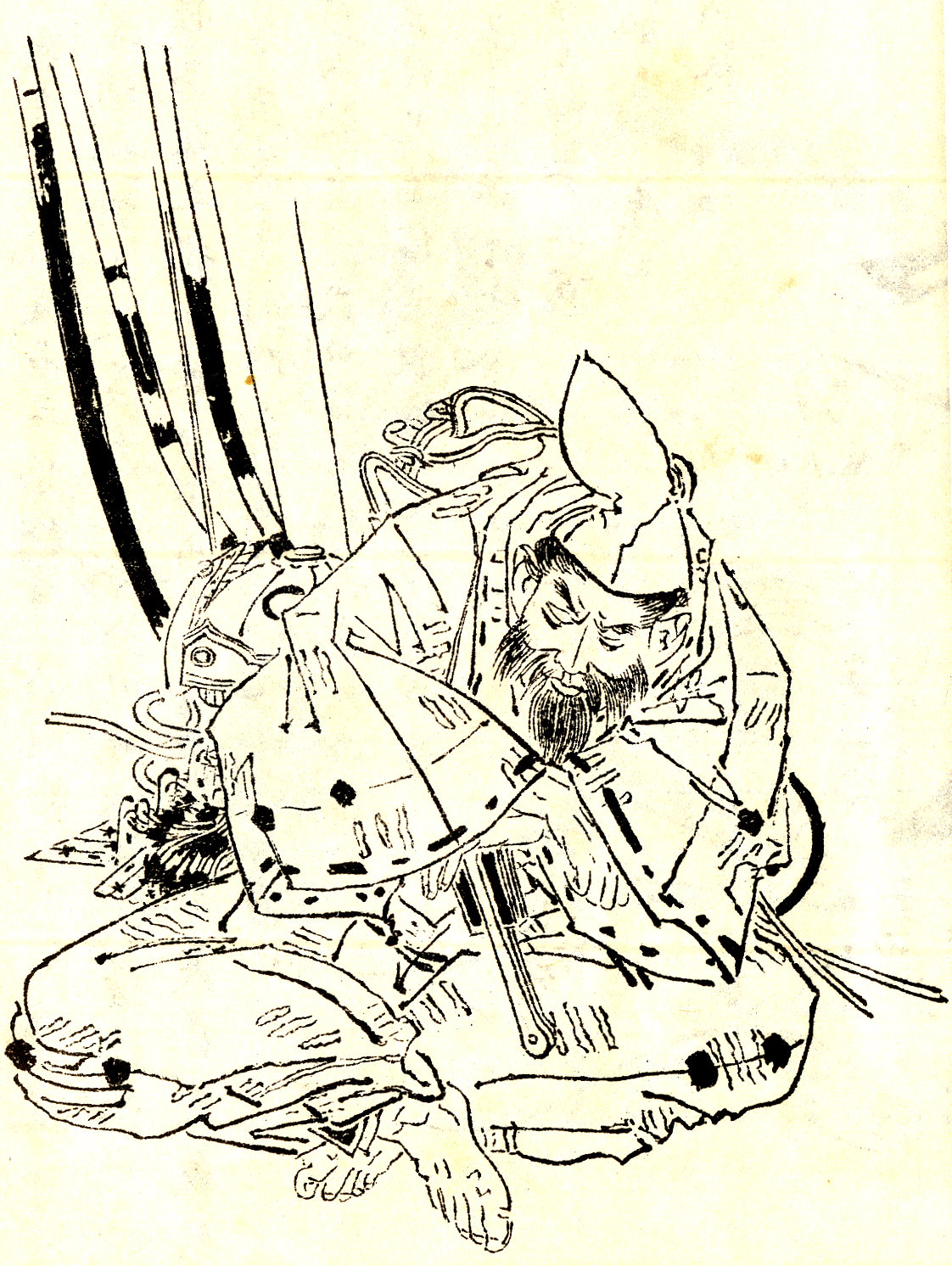Wada Yoshimori on:
[Wikipedia]
[Google]
[Amazon]
 was an early
was an early
Yuigahama
accessed on November 2, 2008
 was an early
was an early Kamakura period
The is a period of Japanese history that marks the governance by the Kamakura shogunate, officially established in 1192 in Kamakura by the first ''shōgun'' Minamoto no Yoritomo after the conclusion of the Genpei War, which saw the struggle bet ...
military commander. A ''gokenin
A was initially a vassal of the shogunate of the Kamakura and the Muromachi periods.Iwanami Kōjien, "Gokenin" In exchange for protection and the right to become '' jitō'' (manor's lord), a ''gokenin'' had in times of peace the duty to protect ...
'' (retainer) of the Kamakura shogunate
The was the feudal military government of Japan during the Kamakura period from 1185 to 1333. Nussbaum, Louis-Frédéric. (2005)"''Kamakura-jidai''"in ''Japan Encyclopedia'', p. 459.
The Kamakura shogunate was established by Minamoto no Y ...
, he was the first director (''bettō
is a term which originally indicated the head of an institution serving temporarily as the head of another one, but which came to mean also the full-time head of some institution.Iwanami Japanese dictionaryEncyclopedia of Shinto, Bettō The Kama ...
'') of the Samurai-dokoro The ''Samurai-dokoro'' (侍所 - Board of Retainers) was an office of the Kamakura and Muromachi shogunates. The role of the ''Samurai-dokoro'' was to take the leadership of ''gokenin'', the shogun's retainers, and to be in charge of the imprisonme ...
.
Life
Wada Yoshimori was born as the son of Miura Yoshiaki and grandson of Sugimoto Yoshimune, making him a descendant of theTaira clan
The Taira was one of the four most important clans that dominated Japanese politics during the Heian, Kamakura and Muromachi Periods of Japanese history – the others being the Fujiwara, the Tachibana, and the Minamoto. The clan is divided ...
.Kusumoto (2002:68)
Yoshimori "was attached to Noriyori as his ''saburai daisho'' (general of soldiers)." He fought in the battle of Ichi-no-Tani (1184).
He also fought in the Battle of Dan-no-ura, where he engaged Chikakiyo of Iyo in an archery duel.
Later, he participated in the campaign against Kiso Yoshinaka
, , or Lord Kiso was a general from the late Heian period of Japanese history. A member of the Minamoto clan, Minamoto no Yoritomo was his cousin and rival during the Genpei War between the Minamoto and the Taira clans. Yoshinaka was born in Musas ...
(1184) and Fujiwara Yasuhira Fujiwara (, written: 藤原 lit. "''Wisteria'' field") is a Japanese surname. (In English conversation it is likely to be rendered as .) Notable people with the surname include:
; Families
* The Fujiwara clan and its members
** Fujiwara no Kamatari ...
(1189).
Among his sons were Wada Yoshinao Wada or WADA may refer to:
People
* Wada (Japanese surname), a list of people of Japanese ancestry
* Inuwa Wada (1917-2015), Nigerian politician
* Mian Wada (died 1085), Islamic scholar born in what is now Pakistan
* Tawar Umbi Wada (1957–2010 ...
, Asahina Yoshihide
or Asaina Yoshihide, also known as , was a Japanese warrior of the early 13th century, and the son of Wada Yoshimori and Tomoe Gozen.Kusumoto (2002:170) His name (also written with the characters ) comes from , where he lived at one time. Though ...
, and Wada Yoshishige Wada or WADA may refer to:
People
* Wada (Japanese surname), a list of people of Japanese ancestry
* Inuwa Wada (1917-2015), Nigerian politician
* Mian Wada (died 1085), Islamic scholar born in what is now Pakistan
* Tawar Umbi Wada (1957–2010 ...
. He also had a nephew, Wada Tanenaga Wada or WADA may refer to:
People
* Wada (Japanese surname), a list of people of Japanese ancestry
* Inuwa Wada (1917-2015), Nigerian politician
* Mian Wada (died 1085), Islamic scholar born in what is now Pakistan
* Tawar Umbi Wada (1957–2010 ...
.
Like many others, he and his family became victims of the struggle for power that followed the death of the first Kamakura shōgun Minamoto no Yoritomo
was the founder and the first shogun of the Kamakura shogunate of Japan, ruling from 1192 until 1199.Nussbaum, Louis-Frédéric. (2005). "Minamoto no Yoriie" in . He was the husband of Hōjō Masako who acted as regent (''shikken'') after his ...
. Tension had been growing between the Hōjō Regents
A regent (from Latin : ruling, governing) is a person appointed to govern a state '' pro tempore'' (Latin: 'for the time being') because the monarch is a minor, absent, incapacitated or unable to discharge the powers and duties of the monarchy ...
and Wada, and open war started when Wada Yoshinao, Wada Yoshishige and Wada Tanenaga were accused of conspiracy and arrested. Yoshimori, who was in Kazusa, returned to Kamakura and managed to free his two sons. Tanenaga was however detained and exiled to Mutsu province. War ensued (the so-called ) and in 1213 he was defeated and killed together with his family. The Wada are traditionally supposed to be buried in the Wadazuka Mound in Kamakura, however this is only an unproven theory born after excavations ''in situ'' during the Meiji period
The is an era of Japanese history that extended from October 23, 1868 to July 30, 1912.
The Meiji era was the first half of the Empire of Japan, when the Japanese people moved from being an isolated feudal society at risk of colonization ...
.Kamakura Citizen's NetYuigahama
accessed on November 2, 2008
References
Further reading
* Wada, Yoshimori Wada, Yoshimori Wada, Yoshimori Samurai {{samurai-stub